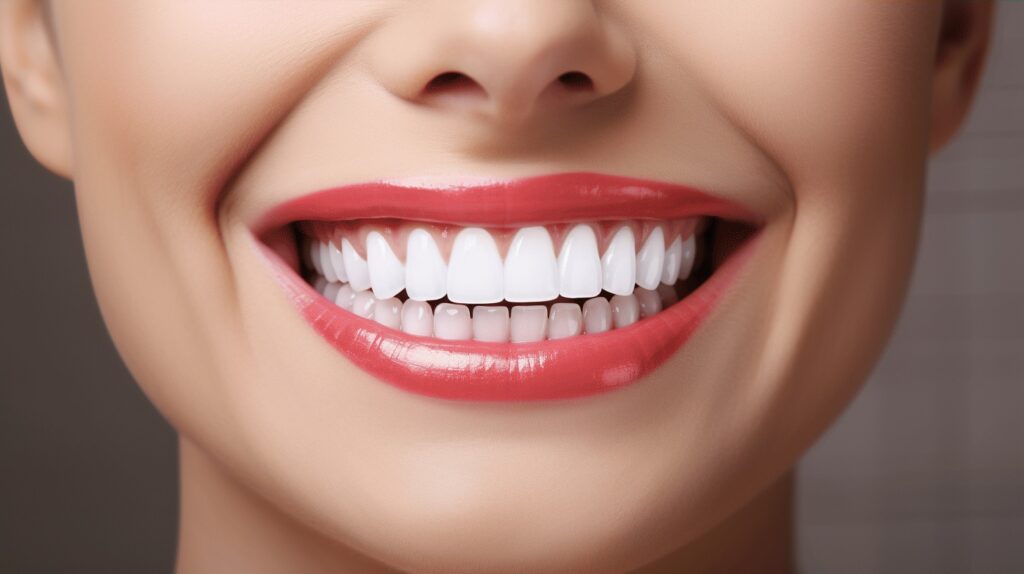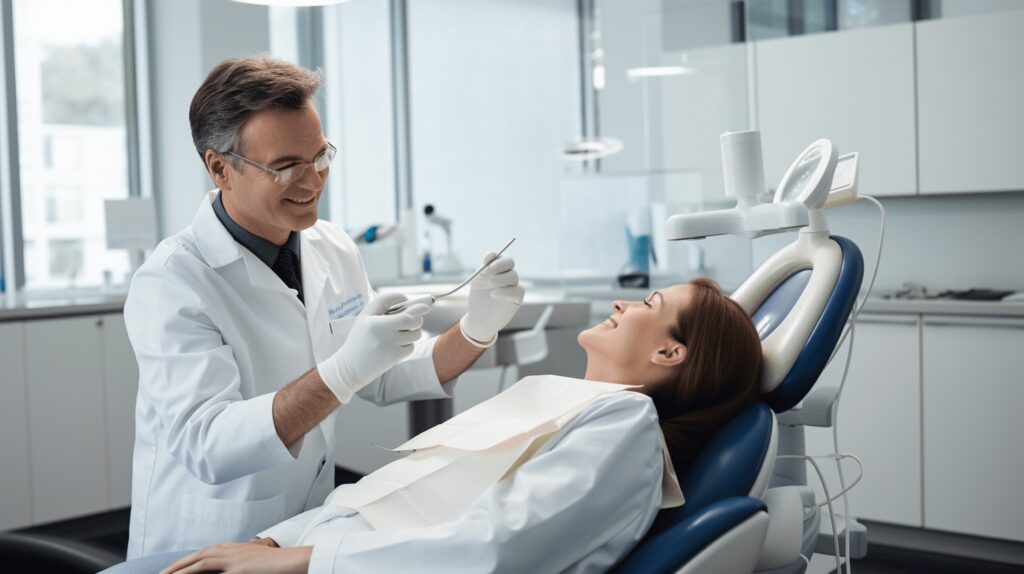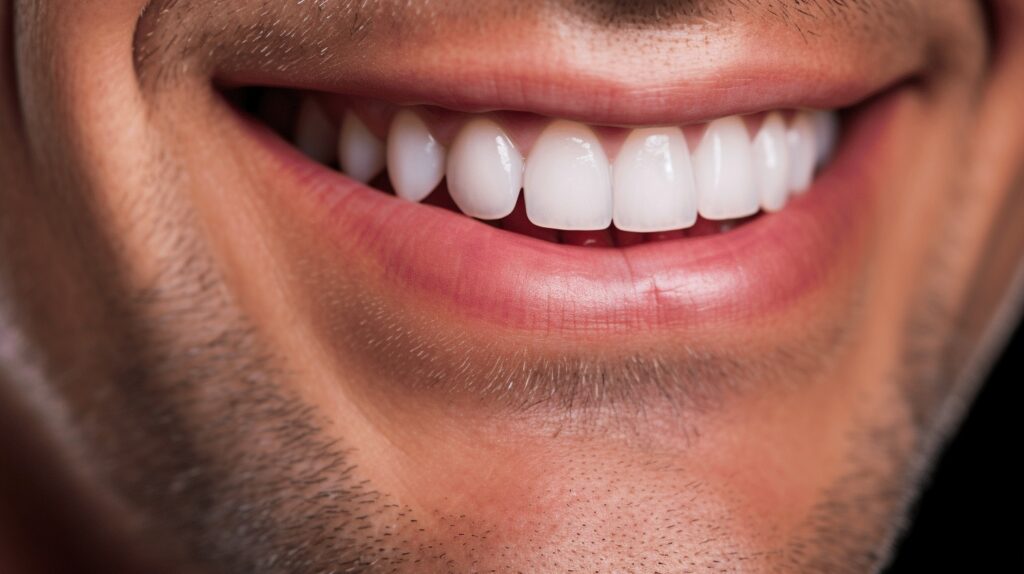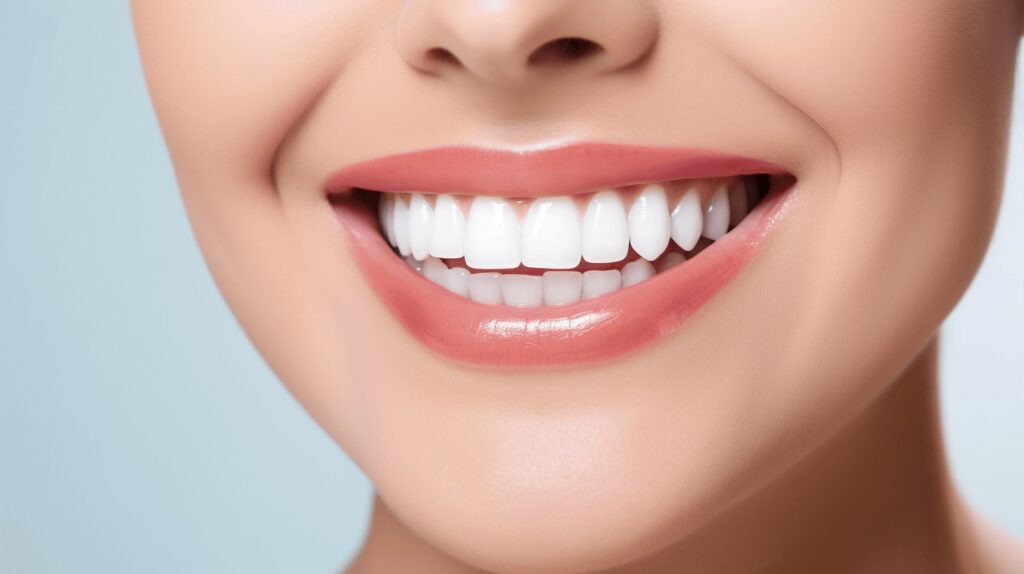Greetings! 🙋♀️
We warmly welcome you to delve into our comprehensive guide on preventative dentistry for seniors because maintaining oral health is critical at every stage of life, more so during the golden years.
As aging kicks in, senior citizens experience an array of health concerns, and one significant area that often gets overlooked is oral health. However, it’s essential to understand that the mouth is the gateway to our body, and ignoring dental health can lead to severe systemic issues.
In this guide, we’re going to look at the prevalence of various oral health concerns among seniors, the impacts of poor oral health, common conditions to watch out for, and preventive measures. We aim to empower you with knowledge so that you or your loved ones can navigate the golden years with the best possible oral health. Stick with us, as we unveil this crucial dimension of senior health, often overshadowed by others.
We believe every senior deserves a beautiful smile that tells a joyous story of their life lived. So take this journey with us and let’s ensure that aging doesn’t steal that radiant twinkle from your or your loved one’s smile. 🦷👵👴
Table of Contents
Prevalence of Oral Health Concerns among Seniors
As we age, maintaining a vibrant smile and good oral health could prove to be a challenge. The prevalence of oral health issues among seniors is a topic that we cannot afford to ignore. Let’s take a deep dive into some of the common oral health concerns that are prevalent among seniors.
Edentulous Cases
Edentulism, a condition where one has lost all their natural teeth, is a significant public health problem among seniors. Shockingly, about 5% of adults aged 65 and older are edentulous. These individuals face challenges like reduced chewing ability, poor nutrition, low self-esteem and social handicap.
Chronic Dental Diseases
As we dive deeper, we find that chronic dental diseases are all too common among older Americans. Astonishingly, about 80% of this demographic grapple with at least one chronic dental condition. Such dental conditions could be anything from gum disease, cavities, oral cancer to dry mouth.
Unmet Dental Care Needs due to Cost
Inaccessibility to dental care due to high costs is another prevalent issue. It’s heartbreaking to know that in a developed state like Minnesota, a whopping 12.2% of seniors reported unmet dental care needs due to cost in 2015.
Moderate/Severe Periodontitis
Periodontitis is a severe gum infection that damages the soft tissue and destroys the bone that supports your teeth. Older adults in the US seem to be fighting a losing battle with periodontitis, with 64% of them suffering from a moderate or severe form of this disease.
Untreated Dental Cavities
Are you aware that untreated dental cavities are common even in adulthood? About 26% of US adults are walking around with untreated dental cavities. This spells trouble, as untreated cavities can lead to serious ailments including abscesses, infection or even tooth loss.
Substantial Tooth Loss
Speaking of tooth loss, it’s also worth noting that about 18% of older adults experience substantial tooth loss, causing considerable inconvenience and impacting their quality of life negatively.
Oral health is an integral part of overall wellness. Hence, it is a high time that we address these issues systematically. To ensure your oral health is not compromised as you age, consider incorporating Preventative Dentistry Practices into your routine. This proactive approach can help seniors combat these common oral health concerns effectively and remain confident with a healthy, beautiful smile.
Impacts of Poor Oral Health
Poor oral health can have far-reaching effects on more than just our smiles. It drives a variety of health issues that you might not anticipate, including systemic disorders and nutritional deficiencies. If you thought flossing was just about keeping food particles at bay, then it’s time for a rethink. Maintaining our oral health is crucial, not only for our dental appearance but also for our overall wellbeing. Let’s take a closer look at five impacts of poor oral health on our body.
Increased Risk of Systemic Disorders
Quite a few systemic disorders are interconnected with the state of our oral health. Periodontal or gum diseases, for instance, increase the risk of severe health issues such as heart attacks and strokes. Furthermore, there is substantial evidence suggesting poor oral health could contribute to cognitive impairments. This interplay between oral health and systemic diseases underscores the importance of dental health in the broad scheme of overall wellness.
Undermined Nutrition and Quality of Life
Poor oral health continues to be a stealthy saboteur for nutritional health. With deteriorating dental health, people often resort to a soft-food diet to ease swallowing and chewing. This, in turn, leads to a poorly balanced, vitamin-deficient diet. Furthermore, communication difficulties, plummeting self-esteem, and a compromised quality of life are common consequences for the vulnerable aging population grappling with the oral health crisis.
Decreased Life Expectancy
It may sound improbable, but your oral health could be a determinant of how long you live. Higher life expectancy is reported in individuals with a greater number of natural teeth at the age of 70. Conversely, poor oral health and loss of teeth can hint at a shortened lifespan.
Higher Risk of Infections
The mouth is a gateway to our body, and when oral health is compromised, it paves an open invitation for infections. Germs proliferate in oral abscesses and can permeate the bloodstream, leading to infections that can affect the whole body. Older adults are particularly susceptible to these systemic infections triggered by poor oral health.
Association with Frailty
We might not normally associate oral health with strength and vitality, but research supports this association. Poor oral health has been identified as a risk factor for frailty in older and middle-aged individuals. Essentially, robust dental health is pivotal in ensuring we lead our lives with resilience and vigor.
Remember, every time we skip a brush or dodge a dental visit, it potentially inches us closer to systemic health issues. It’s not just about a beautiful smile but a healthier, longer life that underlines the significance of proper oral care.
Common Oral Health Conditions in Seniors
It’s no secret that maintaining oral health is a crucial part of overall health and well-being. As we age, we become more susceptible to a range of oral diseases and conditions. In this piece, we’re going to explore some common oral health conditions that seniors might encounter. These include tooth decay and gum disease, gingival recession, dry mouth, and root caries. Let’s delve in, shall we?
Tooth Decay and Gum Disease
You might be surprised to hear that tooth decay and gum disease rank among the most common chronic health conditions in the US. It’s not so surprising when you consider that our dental habits can deteriorate with age. And these aren’t just problems for the mouth. Indeed, periodontal disease links to other serious health disorders like diabetes, heart disease, and even cancer.
- Tooth decay happens when dental plaque, a sticky, bacteria-filled film, builds up on your teeth. Sugary snacks increase the production of acid in your mouth, slowly wearing away enamel and leading to cavities.
- Gum disease, or periodontitis, is an inflammatory condition caused by harmful bacteria in dental plaque. It can lead to swollen, bleeding gums and, in severe cases, tooth loss.
Maintaining proper oral hygiene, going for regular dental checkups, and adopting a balanced diet are some ways we can keep these conditions at bay.
Gingival Recession
As with most health conditions, prevention is better than cure when handling gum recession. Gum recession, or gingival recession, is the process in which the margin of gum tissue that surrounds your teeth wears away, exposing more of your tooth or the tooth’s root.
Did you know that conditions like gingival recession, periodontitis, and dry mouth put older adults at a higher risk of developing root caries? If left untreated, gum recession may evolve into more severe oral diseases, which is why it’s so important to seek professional help at the earliest signs. If you live in the City of Angels and you’ve noticed your gums receding, Gingival Recession Los Angeles is an excellent resource where you can find professional help.Dry Mouth
Dry mouth, or xerostomia, isn’t just an uncomfortable condition — it can be detrimental to oral health. Our mouths need saliva to wash away food and neutralize the acids produced by plaque. Without enough saliva, tooth decay, gum disease, and other oral health conditions become far more likely.
Root Caries
The facts are startling; around 90% of the world’s population will experience oral health problems in their lifetimes. Root caries, or root decay, is a growing concern, especially among the elderly. This condition happens when the tooth’s root gets exposed due to gum recession and then decays.
It’s clear that maintaining oral health offers more benefits than just a beautiful smile. It’s crucial to our overall well-being, and this becomes even more prominent as we age. Stay vigilant, undertake preventative measures, and remember, it’s never too late to start taking better care of your oral health. Sand in the hourglass or not, every grain counts! 😊
Conclusion
Caring for oral health as we grow older is often overlooked, yet it is a critical aspect of overall well-being. Aging is an inevitable journey we all embark on, and while some oral health challenges come with it, they can be managed effectively. Our team at Wilshire Smile Studio takes this to heart, providing a wide range of preventative dentistry services specially designed for seniors.
Remember, regular dental checkups, professional dental cleanings, and proper daily oral hygiene practices are essential for maintaining a healthy, radiant smile at any age. 😊 Keeping your oral health in optimal shape is never too late – and it’s easier to accomplish now at Wilshire Smile Studio.
So, whether you are a senior or have elderly parents or friends, the importance of good dental habits cannot be emphasized enough. The journey to a healthy smile begins with a single step. And we are here, ready to guide you every step of the way, ensuring you’re smiling brightly always. Because at Wilshire Smile Studio, we believe that a healthy smile is a beautiful smile – and even aging can’t take it away.🌟💫
Book your free consultation with us online or call (323) DENTIST (323-336-8478) today.
Frequently Asked Questions
1. Why is preventative dentistry important for seniors?
Preventative dentistry is important for seniors because as they age, they become more susceptible to oral health issues such as gum disease, tooth decay, and tooth loss. Regular dental check-ups, cleanings, and preventive measures can help seniors maintain good oral health and prevent dental problems.
2. What are some common oral health issues that seniors face?
Common oral health issues in seniors include gum disease, dry mouth, tooth decay, oral infections, tooth loss, and oral cancer. Regular dental care and practicing good oral hygiene can help prevent or manage these issues.
3. What are the recommended oral hygiene practices for seniors?
Recommended oral hygiene practices for seniors include brushing teeth at least twice a day with a soft-bristle toothbrush, using fluoride toothpaste, flossing daily, using mouthwash, and maintaining a balanced diet. It is also important for seniors to visit their dentist regularly.
4. Can seniors still get dental implants if they have missing teeth?
Yes, seniors with missing teeth can still get dental implants. However, suitability for dental implants depends on various factors such as overall oral health, bone density, and existing medical conditions. A consultation with a dental professional is necessary to determine if dental implants are a viable option.
5. Are there any specific dental care considerations for seniors with chronic medical conditions?
Seniors with chronic medical conditions such as diabetes, heart disease, or osteoporosis should inform their dentist about their condition. It is crucial to manage both the oral health and medical condition simultaneously, as certain medications or treatments may have dental implications. The dentist can provide appropriate guidance and treatment recommendations.









